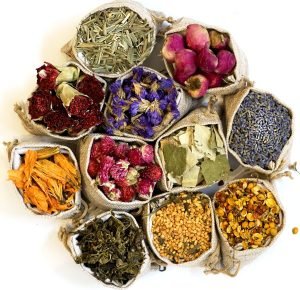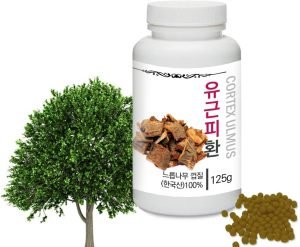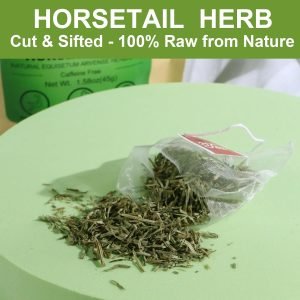What Is The Practice Of Using Herbs To Treat Illness?
So you’ve heard about the idea of using herbs to treat illnesses but are wondering what exactly it entails? The practice of using herbs as a natural alternative to traditional medicine has been around for centuries and is often referred to as herbal medicine or herbalism. It involves using plants and their extracts to alleviate symptoms, strengthen the immune system, and promote overall wellness. In this article, we will explore the principles behind this ancient practice and its potential benefits in maintaining a healthy lifestyle.

What is herbal medicine?
Herbal medicine, also known as herbalism, is the practice of using plants and plant extracts to treat and prevent illness. It is one of the oldest forms of medicine, dating back thousands of years to ancient civilizations. Herbal medicine recognizes the innate healing power of nature and seeks to support the body’s natural ability to restore balance and promote wellness. By harnessing the medicinal properties of various herbs, herbal medicine offers a complementary approach to conventional healthcare.
Definition of herbal medicine
Herbal medicine is a system of healthcare that uses plants and plant-derived substances to promote healing. It involves the preparation and administration of herbal remedies, which can be consumed orally, applied topically, or inhaled as vapors. Herbal medicine encompasses a wide range of practices, including the use of herbal teas, tinctures, capsules, and topical applications. It emphasizes the holistic approach to health and treats the person as a whole, taking into consideration their physical, mental, and emotional well-being.
Historical use of herbs in medicine
The use of herbs in medicine has a rich and extensive history. Throughout ancient civilizations such as Egypt, China, India, and Greece, plants were revered for their therapeutic properties. Traditional systems of medicine, including Traditional Chinese Medicine and Ayurveda, have utilized herbs for centuries to address various ailments. Indigenous cultures around the world have also relied on plants as medicines, passing down their knowledge through generations. The historical use of herbs in medicine provides a foundation for the modern practice of herbal medicine.
Principles of herbal medicine
Herbal medicine is guided by several key principles that shape its practice and approach to healthcare.
Holistic approach
One of the fundamental principles of herbal medicine is the holistic approach, which recognizes the interconnectedness of the body, mind, and spirit. Herbal medicine views health as a state of balance and harmony within an individual, where all aspects of their being are in equilibrium. By addressing the underlying causes of illness and considering the person as a whole, herbal medicine seeks to restore balance and promote overall well-being.
Balance and harmony
Herbal medicine aims to restore balance and harmony within the body. It acknowledges that an imbalance or disruption in one system can impact the entire body. By using herbs with specific properties and actions, herbal medicine seeks to rebalance the body’s systems and promote optimal health. For example, if someone is experiencing digestive issues, herbs with digestive properties may be prescribed to restore balance and alleviate symptoms.
Individualized treatment
In herbal medicine, each individual is unique, and their healthcare should be tailored to their specific needs. A personalized approach allows for the consideration of an individual’s unique constitution, medical history, and current health conditions. Herbal medicine practitioners take into account the individual’s physical, emotional, and lifestyle factors to develop a customized treatment plan. By addressing the person’s unique needs, herbal medicine offers a more personalized and effective form of treatment.
Types of herbal remedies
Herbal remedies come in various forms, with each offering distinct advantages and applications.
Herbal teas
Herbal teas, or infusions, are a common and widely accessible form of herbal medicine. These are made by steeping dried herbs in hot water, allowing the water to extract the herb’s medicinal properties. Herbal teas can be enjoyed for their therapeutic benefits and provide a soothing and flavorful way to consume herbs.
Tinctures
Tinctures are concentrated herbal extracts that are created by extracting the medicinal compounds from herbs using alcohol or another solvent. Tinctures provide a convenient and potent way to consume herbs, as they can be easily measured and absorbed by the body. They are typically taken in droplet form, added to a beverage, or applied topically.
Capsules and tablets
Herbs can also be encapsulated or compressed into tablets, providing a convenient option for those who prefer a more standardized and portable form of herbal medicine. Capsules and tablets offer a precise and consistent dosage of herbs, making them suitable for long-term supplementation or targeted treatment.
Topical applications
Herbs can be used topically in the form of creams, ointments, or oils. Topical applications provide localized relief and are commonly used for skin conditions, joint pain, and muscle soreness. The skin readily absorbs the medicinal properties of the herbs, allowing for targeted treatment and quick relief.
Common herbs used in herbal medicine
Herbal medicine utilizes a wide range of plants and herbs, each with their unique therapeutic properties. Here are a few commonly used herbs in herbal medicine:
Echinacea
Echinacea is a popular herb known for its immune-boosting properties. It is often used to prevent and treat the common cold and respiratory infections. Echinacea stimulates the immune system and helps reduce the duration and severity of symptoms.
Ginger
Ginger is a versatile herb with anti-inflammatory and digestive properties. It is commonly used to relieve nausea, motion sickness, and indigestion. Ginger can also help reduce inflammation and alleviate muscle pain.
Garlic
Garlic is well-known for its antimicrobial properties and its ability to support cardiovascular health. It helps boost the immune system, lower blood pressure and cholesterol levels, and may have anticancer effects.
Ginseng
Ginseng is a highly valued herb in traditional medicine, particularly in Traditional Chinese Medicine. It is used to enhance vitality, improve mental clarity, and combat fatigue. Ginseng is also believed to support the immune system and promote overall well-being.
Chamomile
Chamomile is a gentle herb commonly used for its calming and soothing effects. It is often consumed as a tea to promote relaxation, relieve anxiety and insomnia, and soothe digestive discomfort.
Turmeric
Turmeric is a vibrant yellow herb known for its anti-inflammatory properties. It contains a compound called curcumin, which has been studied for its potential benefits in reducing inflammation, supporting joint health, and promoting digestive wellness.

Benefits of using herbs to treat illness
Using herbs to treat illness offers several advantages and benefits over conventional medications.
Natural and holistic
Herbal medicine provides a natural approach to healthcare, utilizing plants that have evolved over centuries and have a long history of human use. By harnessing the healing power of nature, herbal medicine supports the body’s innate ability to heal and restore balance. It takes into account the whole person, not just the symptoms, and addresses the root causes of illness.
Fewer side effects
Compared to many pharmaceutical drugs, herbal remedies generally have fewer side effects. The active compounds in herbs are often balanced by other natural constituents, resulting in a gentler and more harmonious effect on the body. However, it is still important to use herbs with knowledge and caution, as they can still interact with medications and have contraindications in certain situations.
Cost-effective
Herbal medicine can be a cost-effective form of healthcare, especially when compared to pharmaceutical medications. Many herbs are widely available, affordable, and can be grown in home gardens or purchased in bulk. Additionally, herbal teas and tinctures are often more economical than prescription medications and can be used over an extended period without significant expense.
Accessible and easy to use
Herbal medicine is easily accessible, as herbs can be found in health food stores, online retailers, and even in your own backyard. They can be incorporated into daily life through herbal teas, culinary recipes, or topical applications. Furthermore, many people find comfort in using herbal remedies for minor ailments at home, empowering them to take an active role in their own healthcare.
Evidence for the effectiveness of herbal medicine
The effectiveness of herbal medicine is supported by both historical evidence and modern scientific research.
Historical evidence
The longstanding use of herbs in traditional medicine systems provides historical evidence of their efficacy. For centuries, various cultures around the world have relied on herbs for their healing properties, passing down their knowledge and experiences through generations. The fact that herbal medicine has stood the test of time demonstrates its effectiveness in promoting health and treating illness.
Scientific research
Modern scientific research continues to explore the efficacy of herbal medicine. Numerous studies have investigated the medicinal properties and mechanisms of action of various herbs. These studies have provided valuable insights into the therapeutic benefits of herbs and have shed light on their potential applications in healthcare. Scientific research helps validate the traditional use of herbs and expands our understanding of their effects on the body.
Clinical trials
Clinical trials play a crucial role in evaluating the safety and efficacy of herbal medicine. By subjecting herbal remedies to rigorous scientific testing, clinical trials provide valuable evidence on their effectiveness in treating specific health conditions. While not all herbs have undergone extensive clinical trials, there is a growing body of research supporting the use of certain herbs for various ailments.

Precautions and considerations
While herbal medicine offers many benefits, it is important to exercise caution and consider certain precautions and considerations.
Safety concerns
While herbs are generally considered safe for most people, they do have the potential to cause adverse reactions or interact with medications. Some individuals may have allergies or sensitivities to certain herbs, and it is essential to be aware of any potential side effects. Additionally, the quality and purity of herbs can vary, so it is important to obtain them from reputable sources and ensure they are free from contaminants.
Interactions with medications
Some herbs can interact with prescription medications, altering their effectiveness or increasing the risk of side effects. It is crucial to consult with a qualified healthcare provider or herbal medicine practitioner before combining herbal remedies with any medications to ensure safety and avoid potential interactions.
Pregnancy and breastfeeding
Pregnant and breastfeeding individuals should exercise caution when using herbal remedies. Some herbs may have contraindications during pregnancy, potentially harming the developing fetus or affecting breastfeeding. It is vital to consult with a healthcare professional knowledgeable in herbal medicine to determine which herbs are safe to use during these stages of life.
Consulting a qualified practitioner
While herbal remedies can be used safely at home for minor ailments, it is advisable to consult a qualified herbal medicine practitioner for complex or chronic health conditions. A trained practitioner can provide personalized guidance, taking into consideration your unique health profile, current medications, and potential contraindications.
Integrating herbal medicine with conventional healthcare
Herbal medicine can be integrated with conventional healthcare to offer a comprehensive approach to well-being.
Collaboration between practitioners
Collaboration between herbal medicine practitioners and conventional healthcare providers can enhance patient care. By working together, practitioners from both disciplines can share knowledge, expertise, and perspectives to develop an integrative treatment plan that addresses the individual’s needs holistically. This collaborative approach ensures that the benefits of herbal medicine and conventional medicine are maximized, enhancing the overall therapeutic outcome.
Complementary and alternative medicine
Herbal medicine is often considered a form of complementary and alternative medicine (CAM). It can work alongside conventional medical treatments to provide additional support and address health concerns from a different perspective. CAM approaches, including herbal medicine, can help individuals manage symptoms, improve quality of life, and enhance overall well-being in conjunction with conventional treatments.
Potential benefits and challenges
Integrating herbal medicine with conventional healthcare offers potential benefits such as reduced dependency on pharmaceutical medications, improved symptom management, and enhanced overall health outcomes. However, challenges may arise from differences in philosophies, lack of standardization in herbal preparations, and limited integration within conventional healthcare systems. Stronger collaboration, research, and education efforts are necessary to fully realize the potential benefits of this integration.
Cultural and traditional perspectives on herbal medicine
Herbal medicine has deep roots in various cultural and traditional systems of medicine.
Traditional systems of medicine
Traditional systems of medicine, such as Traditional Chinese Medicine, Ayurveda, and Indigenous healing practices, have long recognized the therapeutic properties of plants and herbs. These systems incorporate herbs into their holistic approach to healthcare and view plants as integral to the balance and well-being of individuals. The cultural and traditional perspectives on herbal medicine provide distinct frameworks and insights into the use of herbs for healing.
Herbal remedies in different cultures
Different cultures have their own unique herbal remedies and practices. From Native American herbalism to African traditional healing, each culture has its arsenal of herbs and herbal preparations to address health concerns specific to their region and cultural beliefs. These cultural variations highlight the diversity and richness of herbal medicine, demonstrating its adaptability and relevance across different populations.
Regulation and quality control of herbal products
Regulation and quality control of herbal products ensure their safety, efficacy, and consistent quality.
Regulatory agencies
Many countries have regulatory agencies that oversee the manufacturing, labeling, and marketing of herbal products. These agencies set quality standards, enforce safety regulations, and monitor the proper labeling of herbal remedies. By adhering to these regulations, herbal product manufacturers can provide consumers with assurance of the product’s quality, safety, and reliability.
Standardization and quality assurance
Standardization and quality assurance procedures involve ensuring that herbal products are prepared consistently and meet specific quality criteria. Standards may include maintaining the herb’s potency, known active constituents, and microbial safety. These procedures help guarantee that herbal products maintain their therapeutic benefits and minimize the risk of contamination or adulteration.

Labeling and product claims
Clear and accurate labeling is essential for herbal products. Regulatory authorities often require labeling to include relevant information such as dosage instructions, ingredients, contraindications, and potential side effects. Honest and evidence-based product claims contribute to transparency and informed decision-making for consumers.
In conclusion, herbal medicine is a time-honored practice that offers a holistic and individualized approach to healthcare. By harnessing the power of plants and herbs, herbal medicine aims to restore balance and promote wellness. With a wide range of herbal remedies available, each offering unique benefits, herbal medicine provides a natural and accessible alternative to conventional treatments. The historical evidence, scientific research, and clinical trials supporting the effectiveness of herbal medicine further validate its place in healthcare. However, it is essential to take precautions, consult qualified practitioners, and integrate herbal medicine with conventional healthcare for optimal outcomes. Appreciating the cultural and traditional perspectives on herbal medicine enriches our understanding and opens doors to diverse approaches to healing. Through regulation, quality control, and collaboration between practitioners, herbal medicine can continue to evolve and contribute to the well-being of individuals around the world.




